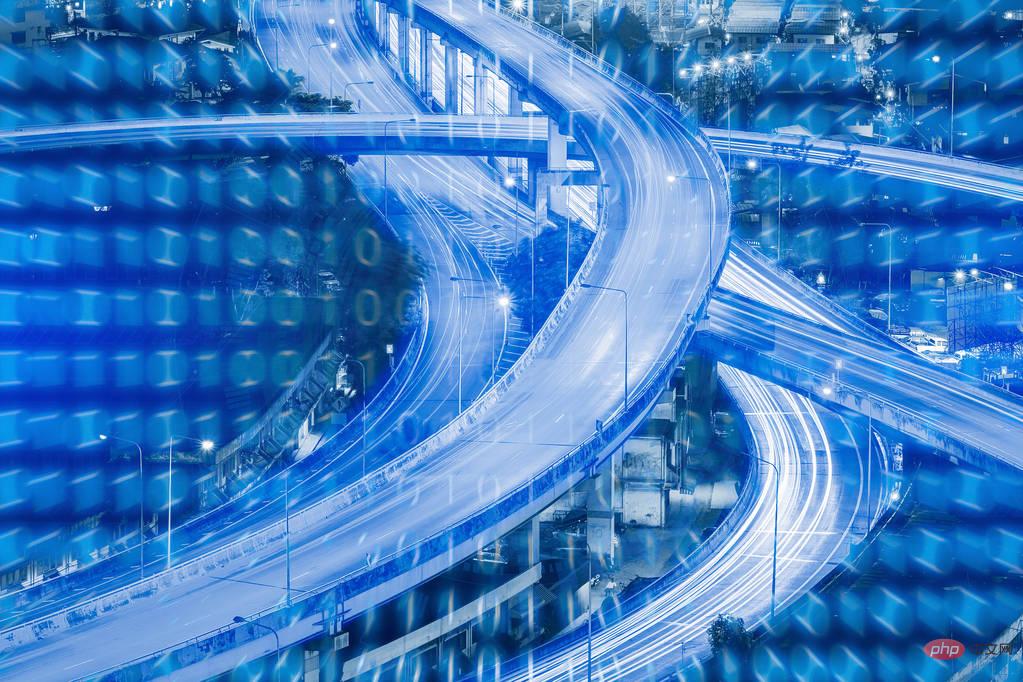Home >Technology peripherals >AI >Ten ways to apply AI in smart cities
Ten ways to apply AI in smart cities
- PHPzforward
- 2023-04-12 20:07:021912browse
Cities continue to innovate with the help of artificial intelligence. Thanks to the AI technology used in smart cities, these cities are able to control traffic, waste and maintenance, as well as predict energy consumption, pollution risks and impact on the environment. Smart cities have a smaller impact on climate change, smarter decisions and improved quality of life. Below, we look at ten ways artificial intelligence can help achieve this goal.

10. Security
When a crime is reported, surveillance footage is often re-viewed, but this does not prevent or deter the crime. Surveillance cameras using artificial intelligence can analyze footage in real time, detect criminal behavior, and then report and deal with it immediately. The cameras can also detect people from their clothing, allowing the technology to find suspects faster than ever before.
9. Maintenance
A company called RoadBotics has developed a technology that uses artificial intelligence to analyze road images, then assess problems and produce cost-effective solutions. This allows the city to know when and where repairs are needed and deal with them while saving money. This technology also improves safety in cities because problems don't go unnoticed.
8. Predicting future needs
Smart cities that use artificial intelligence technology to innovate can better predict future human needs. Using energy tracking technology can let cities know when new energy is needed, or when more sustainable methods can be implemented. Some AI technologies can also predict and help plan property developments, meaning homes will be put on the market when needed.
7. Control pollution
Scientists have developed a technology that uses artificial intelligence and machine learning to analyze current pollutants and predict pollution levels in the next 2 hours. This technology allows responsible people to make decisions in advance to reduce their impact on the environment.
6. Parking System
Using license plate recognition technology, parking lots are able to detect vehicles parked overtime, which can also enforce payments and fines. When artificial intelligence systems are integrated into the entire parking lot, parking spaces can be presented to waiting users, and some more advanced technologies can also recommend parking spaces based on vehicles.
5. Public Transportation
Public transportation has been innovated through the use of artificial intelligence in smart cities. This technology allows public transporters to receive and access real-time dates and tracking, improving time and customer satisfaction. There are also plans for autonomous buses within the city, which could reduce emissions, improve routes and increase frequency.
4. Waste Management
Smart cities are starting to use artificial intelligence in waste management. This type of technology allows cities to track recycling and identify items that can be recycled in the area. Some cities in Sydney are taking this a step further, using AI robots to sort waste and clean areas such as lakes and rivers.
3. Traffic Management
Artificial intelligence technology is being applied in the transportation industry to reduce traffic and accidents. A traffic management technology called CIRCLES has the ability to predict and reduce traffic, using deep learning algorithms, which can also reduce pollution caused by traffic. AI can also be used throughout traffic camera systems to detect road crime in real time, making it easier to deal with.
2. Energy Tracking
Artificial intelligence can be used in smart cities to analyze and track the energy usage of businesses and citizens, and then based on this data decisions can be made about where to use renewable energy. This could also show cities where energy is being wasted and how it can be conserved.
1. Environment
Smart cities can use artificial intelligence to see their impact on the local environment, global warming, and pollution levels. Using artificial intelligence and machine learning in pollution control and energy consumption can allow governments and cities to make informed decisions that are best for the environment. Smart cities also use artificial intelligence to detect carbon dioxide to make decisions about transportation.
The above is the detailed content of Ten ways to apply AI in smart cities. For more information, please follow other related articles on the PHP Chinese website!
Related articles
See more- Technology trends to watch in 2023
- How Artificial Intelligence is Bringing New Everyday Work to Data Center Teams
- Can artificial intelligence or automation solve the problem of low energy efficiency in buildings?
- OpenAI co-founder interviewed by Huang Renxun: GPT-4's reasoning capabilities have not yet reached expectations
- Microsoft's Bing surpasses Google in search traffic thanks to OpenAI technology

